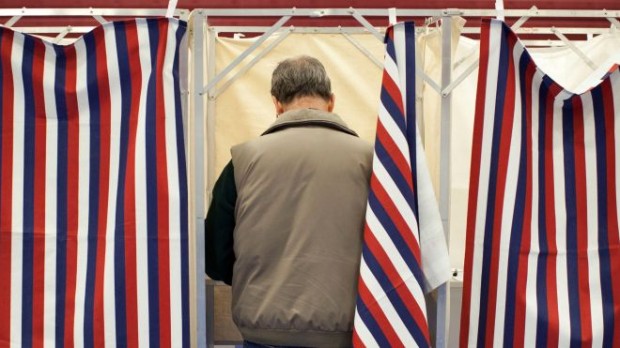Bob Valeu Column: North Dakota Voters At Risk Of Losing Their Right To Vote

Recent local special elections demonstrate that the new voter ID law is fundamentally flawed and is disenfranchising specific groups of voters. The Republican Supermajority in the 2013 State Legislative Session passed a new voter ID law that is one of the most egregious laws in the nation by eliminating the fail-safe option of voting by affidavit. Secretary of State Al Jaeger, a Republican, has since jerry-rigged the rules that now threaten to disenfranchise thousands of North Dakota voters, especially senior citizens, disabled citizens, college students, and Native Americans.
The new voter ID law and Secretary Jaeger’s rules create requirements that are onerous, confusing, and unworkable. The new law places unfair restrictions on targeted groups and are punitive in that they deny citizens the right to vote if they do not produce an ID defined by the Secretary of State. The issue of adequate voter IDs surfaced in the 2012 general election when approximately 10,000 voters needed to use the fail-safe provision of signing an affidavit because of insufficient voter identification. Six thousand of those votes were cast in two counties, Cass and Grand Forks.
The issue of so many people needing to vote by utilizing the affidavit is more of a reflection of Secretary Jaeger’s incompetency. However, the Republican Supermajority decided to put the burden on voters by passing HB 1332 on a strict partisan vote.
The more appropriate fix would have been to change the law to provide for a workable provisional ballot process, as is common in other states, where a voter could provide the necessary or correct information within a reasonable timeframe. North Dakota should follow the example of these states. But, once again, we see the heavy hand of one-party rule in the legislature and state government.
The Secretary of State is now complicit in the Republican Supermajority’s political move to make it more difficult for targeted groups to exercise their constitutional right to vote. Secretary Jaeger has refused to promulgate rules through an open process, refusing to consult either political party for input. As a result…
- Secretary Jaeger has made election officials out of thousands of nursing home, assisted living, and long-term care employees. These individuals will now decide which senior citizens in these facilities can or cannot vote.
- If a disabled person living at home does not have a North Dakota Department of Transportation (NDDOT) or Tribal issued ID they can only vote by absentee ballot. They will not be allowed to vote at the polling place on Election Day.
- If an individual does not have a NDDOT issued driver’s license and wants to secure a “non-driver” license, the voter must secure a certified copy of his or her birth certificate at a cost. This, in essence, creates an unconstitutional poll tax in order to vote.
- A senior citizen living at home who does not have a NDDOT issued ID or appropriate Tribal ID will only be able to vote by absentee and must find an attester to assist them in voting.
- The issuance of the new Certificate of ID form from a North Dakota facility is defective as a means of insuring eligibility to vote. If a person moves less than 30 days from one residence to another before an election they risk being denied the right to vote if they comply with the Secretary Jaeger’s instructions of notifying the NDDOT of their change of address.
- By Secretary Jaeger’s own admission, the law is flawed relative to the “attester” provision.
- The posted information on the Secretary of State’s web site is vague and misleading as the Student Identification certificate makes reference to only to a North Dakota college or university. It says nothing about private colleges and universities.
It is likely that a review of the local elections already held will show that the new voter ID was not properly complied with. In the recent Fargo School District election citizens were misinformed about the type of ID required to vote.
The new law should be enjoined and, lacking that, Governor Dalrymple should sign an executive order providing for non-partisan election observers at the June Primary to assess compliance with the new law and report to the Governor within 30 years of any irregularities, the number of people denied to vote, and other issues relating to administering the law. If there are irregularities and citizens have been denied the right to exercise their vote because of confusing, misleading and inadequate information and defective rules then the Governor should call a special session to have the law fixed before the General Election in November.
As citizens we should demand that our government protect the right of every eligible voter to exercise his or her right to vote. Government should not be creating restrictive, punitive, misleading or convoluted information that negatively targets and create unwarranted roadblocks to citizens especially our elderly, students, disabled, and Native Americans.




